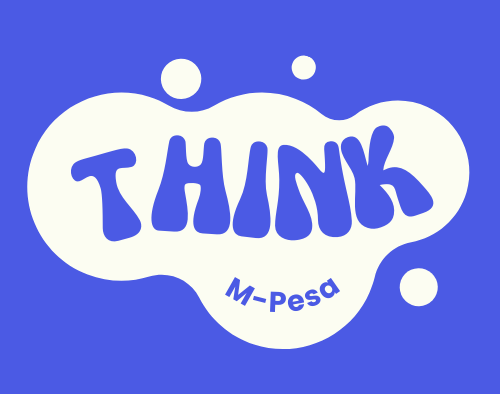Many individuals overlook the profound impact that journaling can have on their mental well-being. By committing to this simple yet powerful practice, you can experience enhanced clarity in your thoughts, leading to reduced stress and improved emotional health. Writing down your feelings and thoughts enables you to better articulate and process them, resulting in greater self-awareness and a clearer mindset. As you make journaling a routine part of your life, you’ll find that unlocking your inner thoughts can lead to newfound insights and peace of mind.
Understanding Mental Clarity
Your mental clarity refers to the state of being able to think clearly, make decisions effectively, and process information with ease. It enables you to prioritize tasks, solve problems efficiently, and maintain focus amidst distractions. Achieving mental clarity can lead to improved performance in both personal and professional domains, making daily challenges more manageable.
Definition of Mental Clarity
To define mental clarity, it can be described as a state of cognitive lucidity where your thoughts are organized and free from confusion. This clarity allows you to navigate your emotions, assess situations accurately, and engage in critical thinking without unnecessary mental clutter.
Importance of Mental Clarity for Overall Well-being
Between heightened stress levels and the demands of everyday life, maintaining mental clarity is vital for achieving a balanced state of well-being. When you possess mental clarity, you are better equipped to handle challenges, which leads to improved emotional regulation and decision-making skills. This state fosters resilience, enabling you to cope more effectively with obstacles.
And, gaining mental clarity not only enhances your ability to concentrate but also significantly reduces anxiety and feelings of overwhelm. With a clear mind, you can more easily identify your priorities and goals, which contributes to a more fulfilling life. Furthermore, mental clarity encourages better communication and strengthens your relationships by allowing you to engage meaningfully with others. Ultimately, embracing strategies that promote mental clarity can lead to a more productive and satisfying existence.
The Practice of Journaling
Assuming you have decided to launch on your journaling journey, it is necessary to create a routine that suits your lifestyle. Whether you choose to write daily or weekly, the consistency in your practice will enhance your mental clarity. Set aside a specific time and comfortable space to transform your thoughts into words, allowing you to reflect on your emotions and experiences.
Different Types of Journals
Any journaling practice can be tailored to your personal needs and preferences. Here are some popular types to explore:
| Type | Description |
| Gratitude Journal | Focuses on expressing thankfulness. |
| Reflective Journal | Encourages deeper self-exploration and insight. |
| Bullet Journal | Combines planning with creative expression. |
| Travel Journal | Documents your adventures and experiences. |
| Dream Journal | Captures and analyzes your nighttime thoughts. |
Recognizing which type resonates with you can enhance your journaling experience and promote profound self-awareness.
Journaling Techniques for Beginners
Beside choosing the type of journal, you may want to explore various techniques that can help you get started. Techniques like free writing, prompts, or sentence starters can ease you into the habit.
In addition, you can experiment with different styles and tones. Free writing encourages you to write continuously without editing, allowing your thoughts to flow freely. Using prompts can provide direction, sparking your creativity when you’re unsure what to write about. Another approach is to list your goals or daily reflections, which can help focus your thoughts. By starting slowly and seeing what fits, you’ll develop a journaling routine that strengthens your mental clarity and personal growth.
Cognitive Benefits of Journaling
If you want to boost your mental performance, journaling offers remarkable cognitive benefits. By writing down your thoughts and experiences, you engage in a reflective practice that enhances your mental clarity and sharpens your focus. This can lead to improved creativity and a better understanding of your emotions, ultimately helping you navigate life’s challenges with greater ease.
Enhanced Problem-Solving Skills
After you commit your thoughts to paper, you may find that solving problems becomes increasingly straightforward. Journaling allows you to break down complex issues into manageable parts, enabling you to analyze them from different angles. This reflective process not only helps you identify potential solutions but also fosters a greater sense of control over your thoughts and emotions.
Improved Memory and Comprehension
An effective way to enhance your cognitive functions is through journaling, as it plays a significant role in improving your memory and comprehension. By regularly recording your experiences and thoughts, you actively engage your brain, which helps strengthen neural connections. This practice allows you to retain information better and understand it on a deeper level.
Benefits of improved memory and comprehension through journaling include enhanced recall of important experiences and emotions, allowing you to make informed decisions in the future. This mental exercise promotes better learning as it helps to solidify information in your mind. Additionally, it’s a powerful tool for processing complex emotions or thoughts, making them easier to manage. Engaging in this regular practice enables you to cultivate a deeper understanding of your internal landscape, ultimately leading to greater emotional intelligence and clarity.
Emotional Benefits of Journaling
Despite the challenges you face daily, journaling serves as a powerful tool for emotional wellness. By putting pen to paper, you find a safe space to express your thoughts and feelings. The act of writing can help you process experiences, articulate your emotions, and gain valuable insights, ultimately leading to improved mental clarity, increased happiness, and a better understanding of your emotional landscape.
Stress Reduction and Anxiety Relief
Above all, journaling provides an effective outlet for managing stress and reducing anxiety. When you write about your worries and fears, you can externalize, organize, and confront them head-on. This process not only empowers you but also fosters a sense of calmness and control over your thoughts, which can significantly lower your stress levels and enhance your overall well-being.
Increased Self-Awareness and Reflection
Any journey of personal growth begins with self-awareness, and journaling is one of the best ways to enhance this aspect of your life. By regularly documenting your thoughts and feelings, you gain profound insights into your behavior patterns and emotional triggers. This practice encourages you to reflect on your past and present, helping you identify areas for improvement and recognize positive changes. You cultivate greater emotional resilience as you better understand your responses to various situations, leading to a more fulfilling life.
Understanding your thoughts and emotions through journaling is imperative for personal development. It provides you with the opportunity to identify negative patterns and reframe your mindset, giving you the tools to break free from harmful cycles. As you engage in regular reflection, you also discover your values, passions, and areas that require growth. This heightened self-awareness translates into more confident decision-making and enriched relationships, as you become more attuned to your needs and goals.
Practical Tips for Effective Journaling
Once again, to make the most of your journaling practice, consider these effective strategies:
- Start small and build momentum.
- Choose a time that works best for you.
- Write without judgment to foster clarity.
- Use prompts to inspire thoughts.
- Be consistent for lasting benefits.
After incorporating these tips, you will likely find your journaling sessions to be more fruitful and insightful.
Setting Goals for Your Journaling Practice
Practical goal-setting for your journaling practice can enhance your focus and intentions. Outline what you wish to achieve, whether it’s processing emotions, tracking progress, or exploring creativity. Having defined goals not only directs your writing but also serves as a motivating factor that keeps you engaged with your journal.
Creating a Consistent Routine
Creating a consistent routine is vital for developing a sustainable journaling habit. Establish a specific time each day or week to dedicate to your journal. This structure helps solidify your commitment and makes it easier to prioritize journaling amidst your busy schedule.
Also, building this routine allows you to reap the full benefits of journaling as it transforms into a natural part of your life. Choose a comfortable setting that encourages reflection and minimizes distractions. Sticking to your routine not only cultivates discipline but also enhances the quality of your reflections and insights, making it easier for you to achieve your journaling goals.
Overcoming Common Journaling Challenges
Not every journaling session will flow smoothly, and you may encounter several common hurdles, such as writer’s block and challenges with staying motivated. By recognizing these obstacles, you can develop strategies to overcome them, ensuring that your journaling practice remains a valuable tool for achieving mental clarity.
Dealing with Writer’s Block
To move past writer’s block, try starting with a few prompts or free-writing for a set period. Focus on letting your thoughts flow without censoring or overthinking. This approach allows you to bypass resistance and unlock your creativity, making journaling less daunting.
Maintaining Motivation and Discipline
Among the challenges you may face is the struggle to stay motivated and disciplined with your journaling practice. It’s important to establish a consistent routine that fits seamlessly into your lifestyle, as this helps you make journaling a habit rather than a chore.
Further, you can enhance your motivation by setting clear goals and celebrating your progress. Utilize reminders and create a dedicated journaling space that inspires you. Acknowledge that consistency is key; even a few minutes daily can yield significant benefits. Consider varying your format or topics to keep things fresh and engaging, and openly embrace the journey of discovery that journaling offers.
Final Words
Considering all points, journaling can serve as a powerful tool for enhancing your mental clarity. By providing a dedicated space to organize your thoughts and emotions, you can better understand your feelings and identify patterns in your thinking. Regularly writing down your thoughts allows you to process experiences more effectively, reduces stress, and promotes mindfulness. By incorporating journaling into your routine, you can cultivate a clearer mind, leading to improved decision-making and overall well-being.




